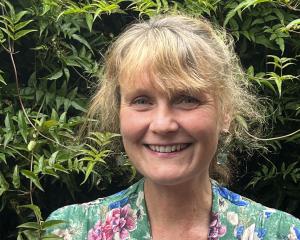
The news follows a fire at the Oval on Friday, which destroyed a shack and tents where homeless people have been sleeping.
The motel is one of two in the city contracted by Te Tūāpapa Kura Kāinga — Ministry of Housing and Urban Development (HUD), under its transitional housing scheme, to house homeless people temporarily.
The government has a policy of stopping the use of motels in the scheme and the ministry’s transitional housing contracts are up for renewal at the end of June. A ministry spokesperson said the government had "confirmed the exit" of one of the two motels from then.
"The motel we have exited has been informed that its contract will not be renewed," they said.
The scheme also funds charities to try to help people in the scheme find a more permanent home. The Salvation Army supported the people in the exiting motel and its transitional housing support in the city was reducing due to the motel’s exit, a spokesperson said.
The motel owner, who has been funded by the housing ministry for seven years, said the motel had volunteered to leave the scheme due to the extent of homeless people’s challenges and insufficient help.
The ministry had contracted all 10 of the motel’s units and it had been a "massive drain and you don’t get the support you need ... I didn’t want to do it any more and had made my feelings known".
The past six months had included "horrible" times, the owner said.
The motel is in the south of the city and is not being named by the Otago Daily Times to protect vulnerable people still living there for the next few weeks. The other motel is in the north of the city.
The motel owner leaving the scheme said they did not want to see anyone going from the motel to the streets.
"We are not going to kick them out, but we need to come to some arrangement with somebody to get paid if we keep anyone beyond the end of June."
The ministry said the people would be helped into alternate housing — including transitional houses or apartments, state houses or private rentals.
However, it added a caveat.
"Where these options are unavailable, households will be supported to contact MSD [Ministry of Social Development] for further assistance."
The Salvation Army said its team was working with other agencies to widen and strengthen support for people in the exiting motel. It supported the government’s policy to exit motels but continued to advocate for investment in housing solutions for the homeless.
Some homeless people have ended up stuck in the transitional housing scheme in Dunedin for many months and in some cases years due to a shortage of housing solutions for them. One family with seven children was stuck in the scheme for two years before leaving for a state home in Christchurch.
The housing ministry said the motel’s exit "does not reflect a reduction in the overall level of ministry-funded transitional housing in the region. Instead, it reflects the withdrawal of one particular site from the programme".
However, when pressed, a spokesperson said the government was "unable to predict how many places will be contracted in Dunedin from 1 July 2025 as we continue to work with providers on service and accommodation capacity whilst balancing the need in Dunedin and across the country".
The housing ministry said there might be a "small drop" in transitional places but "we anticipate that the remaining transitional housing places, along with emergency housing through Ministry of Social Development (MSD), will accommodate the volume of people in Dunedin requiring support".
"HUD is not planning on any significant reductions of transitional housing in Dunedin."
MSD regional director Sue Rissman said there was a "wide range" of support options for people sleeping rough.
"Ultimately, people have a right to choose whether they engage with us, apply for assistance, or accept help which is offered. We cannot make that decision for them." Options ranged from "staying at a friend’s place" to emergency housing, public housing or help finding a private rental.
However, as reported by the ODT on Saturday, emergency housing grants awarded by the MSD in Dunedin have plummeted to just 18 during the six-month period from October 2024 to March 2025 compared with 147 in the same period a year ago. Housing First, a government scheme that provides a permanent home plus ongoing wrap-around specialist support, has not been funded in Dunedin.
Salvation Army addictions and health director Michael Douglas said more funding would enable charities to "scale up to meet increasing demand".











